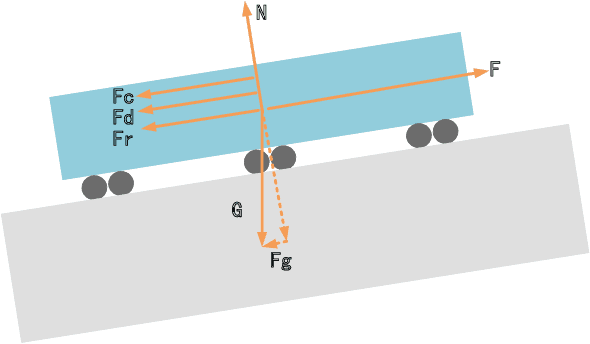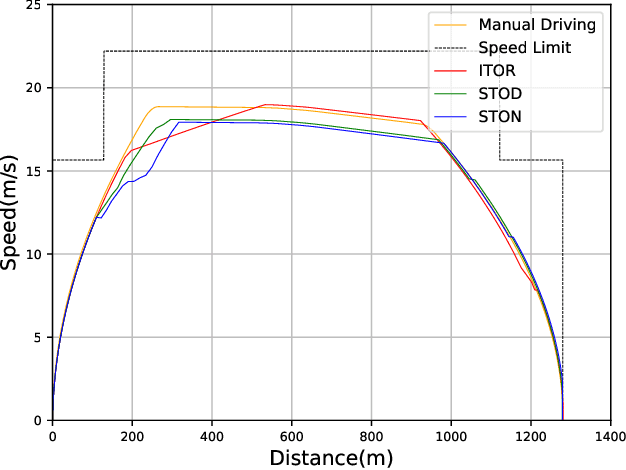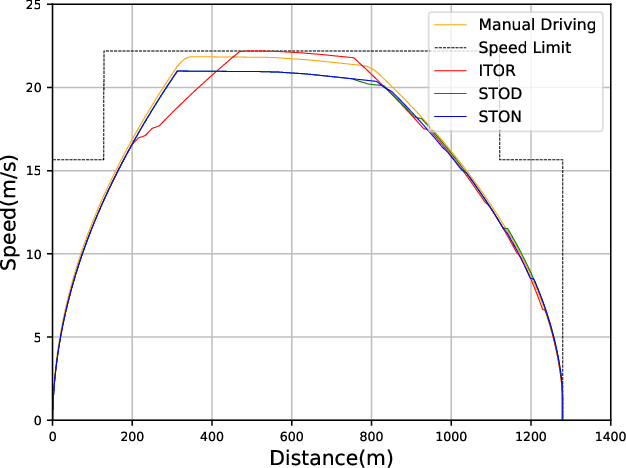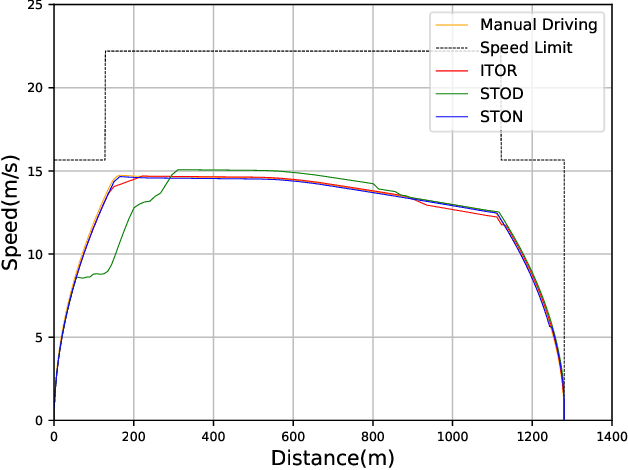Hu Wu
Smart Train Operation Algorithms based on Expert Knowledge and Reinforcement Learning
Mar 06, 2020



Abstract:During recent decades, the automatic train operation (ATO) system has been gradually adopted in many subway systems. On the one hand, it is more intelligent than traditional manual driving; on the other hand, it increases the energy consumption and decreases the riding comfort of the subway system. This paper proposes two smart train operation algorithms based on the combination of expert knowledge and reinforcement learning algorithms. Compared with previous works, smart train operation algorithms can realize the control of continuous action for the subway system and satisfy multiple objectives (the safety, the punctuality, the energy efficiency, and the riding comfort) without using an offline optimized speed profile. Firstly, through analyzing historical data of experienced subway drivers, we summarize the expert knowledge rules and build inference methods to guarantee the riding comfort, the punctuality and the safety of the subway system. Then we develop two algorithms to realize the control of continuous action and to ensure the energy efficiency of train operation. Among them, one is the smart train operation (STO) algorithm based on deep deterministic policy gradient named (STOD) and another is the smart train operation algorithm based on normalized advantage function (STON). Finally, we verify the performance of proposed algorithms via some numerical simulations with the real field data collected from the Yizhuang Line of the Beijing Subway and their performance will be compared with existing ATO algorithms. The results of numerical simulations show that the developed smart train operation systems are better than manual driving and existing ATO algorithms in respect of energy efficiency. In addition, STOD and STON have the ability to adapt to different trip times and different resistance conditions.
 Add to Chrome
Add to Chrome Add to Firefox
Add to Firefox Add to Edge
Add to Edge